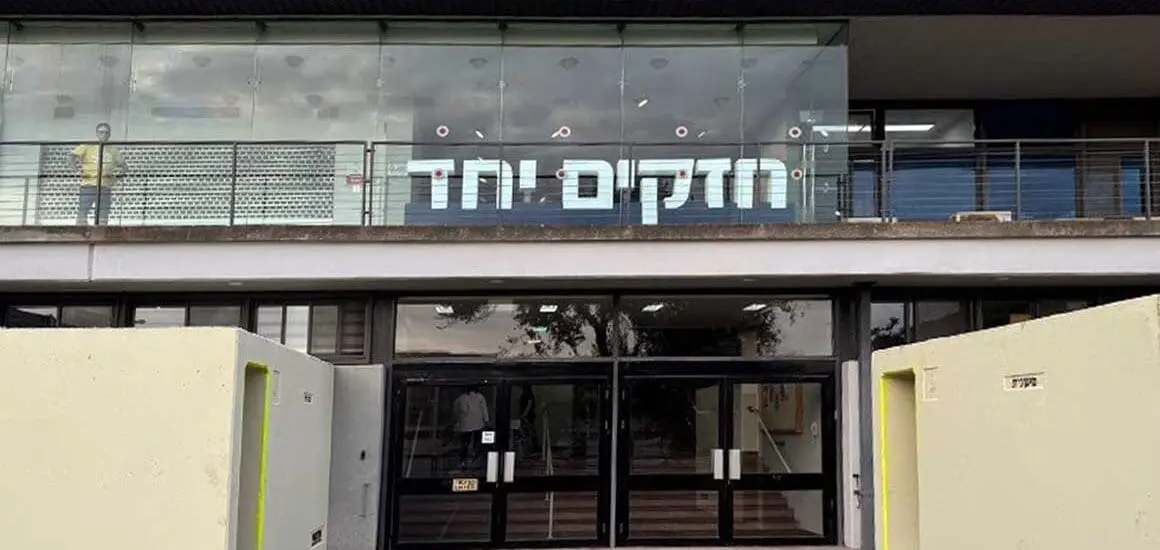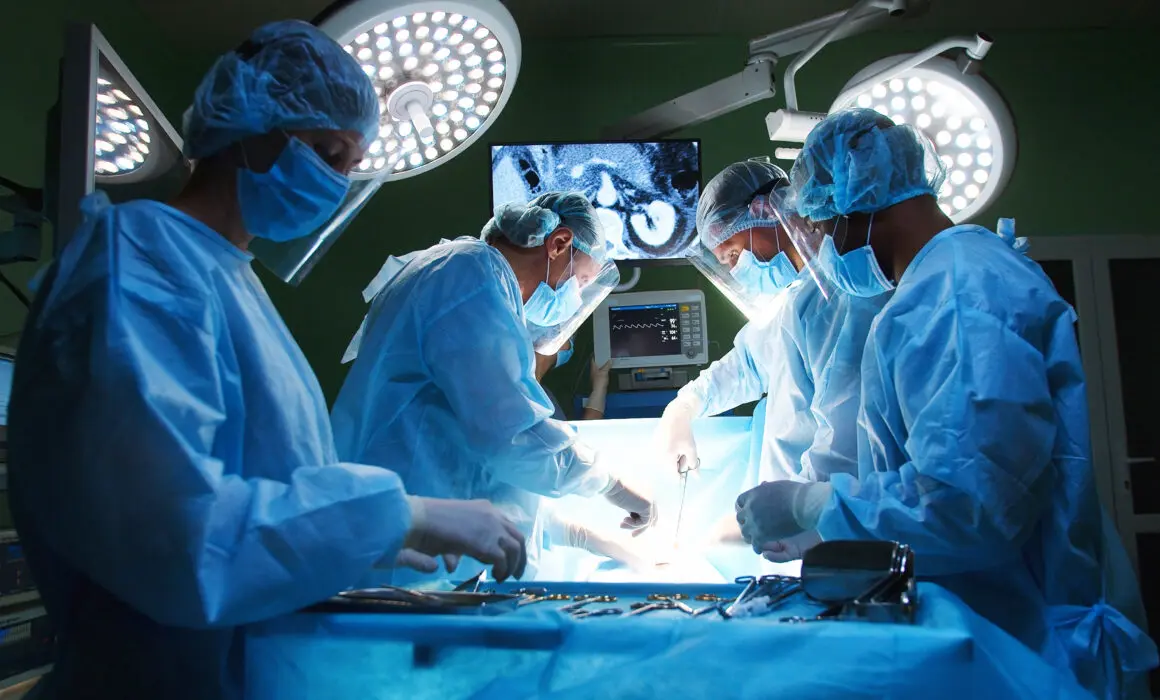Standing Strong: Response to October 7
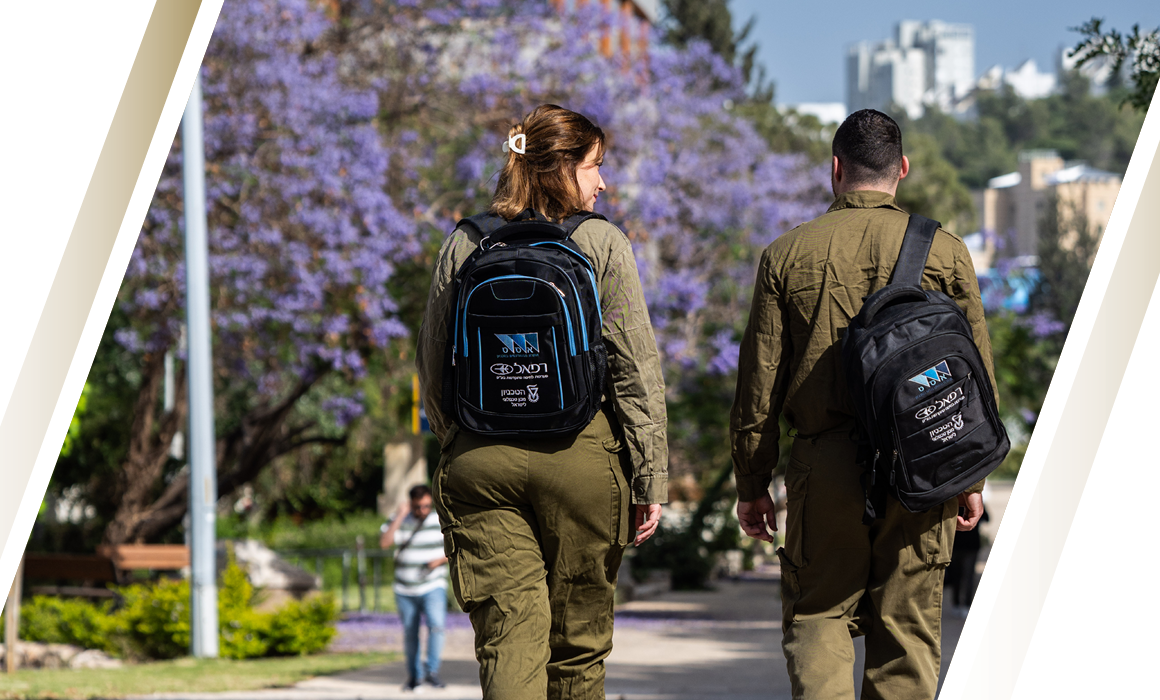
Our Response to October 7 and the War
When our 2024 fiscal year started on October 1, 2023, we were excited to begin celebrating the Technion’s centennial year with festive events throughout the country. We could never have conceived of the horrific events that would unfold in Israel only one week later. The Technion and the American Technion Society quickly pivoted to address the needs of a country and a student body at war.
The start of the academic year for all Israeli universities was postponed from October to January. Due to our large percentage of student reservists and the need to provide a reliable infrastructure of service for them, the Technion began two weeks later, on January 14. More than 3,000 students — 20% of our student body — were called up for reserve duty. Another 500 members of the faculty and staff were also drafted.
Even now, there are still students and staff on active reserve duty, and many more have been or are expected to be called back for a second or third tour. It was, therefore, vital to determine how ATS should manage this reality and support our students upon their return to academic life. Thanks to the unstinting generosity of Americans and other donors around the world, the Technion Emergency Student and Security Support Fund and the Technion Reservist Fund —supplemented by the ATS Technion Fund — allowed the University to shore up campus security; provide a host of services to returning reservists; boost and augment counseling programs; and train teams of students, staff, and faculty to recognize trauma and PTSD.v
Securing the Campus for War
Located in Haifa, only 18.5 miles from the Lebanon border, the Technion campus has been under continuous threat by Hezbollah. Situated on the top of Mt. Carmel, the University is vulnerable to the 160,000 rockets and missiles Hezbollah has amassed on the border, and it is no secret that the Technion is one of their targets. The Technion promptly:
- Renovated bomb shelters and provisioned them with water, food, and other rations
- Hired more security personnel
- Acquired satellite phones, an additional and upgraded PA system for the expedient dissemination of information and warnings, and radio equipment systems
- Purchased two fully equipped security vehicles for use by the Technion’s safety staff
- Procured flak jackets, helmets, and other equipment for the Technion’s intervention and rescue team
- Stationed emergency rescue and relief carts at various sites to facilitate easy distribution of and access to resources
- Shored up security at campus entrances, dormitories, the student center, and auditorium building
- Developed videos in Hebrew, Arabic, and English on red-alert siren behavior and protocols
- Established a helpline for employees and faculty, later extended to the whole community
Standing With Our Student Soldiers
Ensuring that each student and reservist felt embraced by the Technion community was of paramount importance following October 7. A menu of services and programs was developed for students in need.
Students who served reserve duty were provided with scholarships, extended fellowships for graduate and postgraduate students, and exemptions from dormitory and tuition fees. The Technion also offered a range of academic programs, including American Technion Society personal tutoring by assigned mentors; “lightning” courses to fill gaps in missed lectures; a reduction in the number of required credits; postponement of exams; replacement of exams with alternative assessments; time extensions during exams and for submitting projects; converting some numerical grades into pass/fail; flexibility in class attendance requirements; priority in registering for courses in the second semester of 2024; and freedom to change schedules and cancel courses without financial penalties. Throughout the implementation of this unique program, it was ensured there would be no compromise on the quality of students’ education and training, leading to their graduation as proud Technion alumni.
The need for increased psychological services became obvious, with a surge in demand upon the return of reservists. All returning reservists were reached out to individually, informed of all available services — including counseling by psychologists — and provided with a personal plan if needed. Eighty-four workshops were offered to help them transition from war to academic study. “We are doing everything in our power to provide our students with the maximum resources to return to their academic routine in the best possible way through the support system we have developed,” said Professor Ayelet Fishman, dean of students. “Our goal is to allow the students to focus on their studies and fulfill their inherent potential without worrying about environmental factors.”
Total support for the Technion Emergency Student and Security Support Fund: $7,986,641*
$767,866Technological Solutions
|
$1,531,787Students
|
|---|---|
$330,147Campus Security |
$5,356,841General Emergency Needs |
As of September 30, 2024
*Global funds raised
When the 3,000 reservists returned to campus, they received an email informing them about
9 services
available to them:
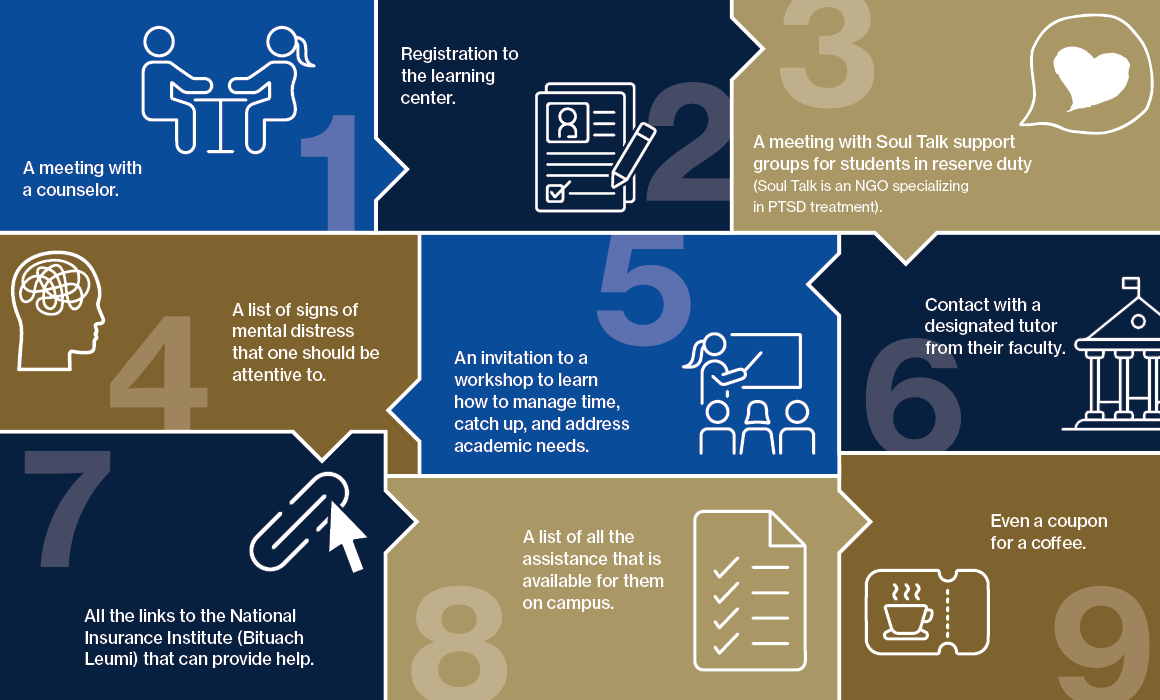

The Ultimate Sacrifice
About 50 faculty members, students, and other members of the Technion family lost relatives to the horrific Hamas attacks on October 7 or during the ensuing conflict. Some still have loved ones held captive in Gaza. Tragically, two Technion students made the ultimate sacrifice: Master Sgt. (res.) Dov Moshe Kogan and Captain (res.) Denis Krokhmalov Veksler. Four alumni were also killed.
Denis Krokhmalov Veksler, 32, was about to begin his studies in the Faculty of Aerospace Engineering. He was tragically killed in action while serving as an officer in the Yahalom combat engineering unit. Dov Moshe Kogan, also 32, had completed his bachelor’s degree in the Faculty of Mechanical Engineering and was pursuing graduate studies there. He was the third generation of his family to attend the Technion. His father, Meir, was a graduate of the Faculty of Aerospace Engineering, who played a role in developing Iron Dome, while his grandfather, Avraham, was one of the aerospace faculty’s founders.
Student Spotlights
Adi Kikozashvili
Student’s Brother Returns Home From Captivity
Shlomi Ziv was one of four hostages rescued from Gaza in a daring Israeli operation on June 8, 2024. The 41-year-old interior designer, husband, and father of two is the brother of Adi Kikozashvili, who was in her final year at the Technion, studying food bioengineering. Shlomi was working as an usher during the Supernova festival when he was kidnapped by Hamas terrorists.
Adi returned to the Technion when the academic year began on January 14, but she had difficulty concentrating and had to “learn how to study again,” she said. She said she went back only because her brother would “be upset if I don’t finish because of him.”
Shlomi came home weak and thin, but in good health and spirits. Adi and the rest of Shlomi’s family naturally rejoiced in his return and pray that such reunions occur for the remaining 100 hostages — a sentiment shared by the entire Technion-ATS community.
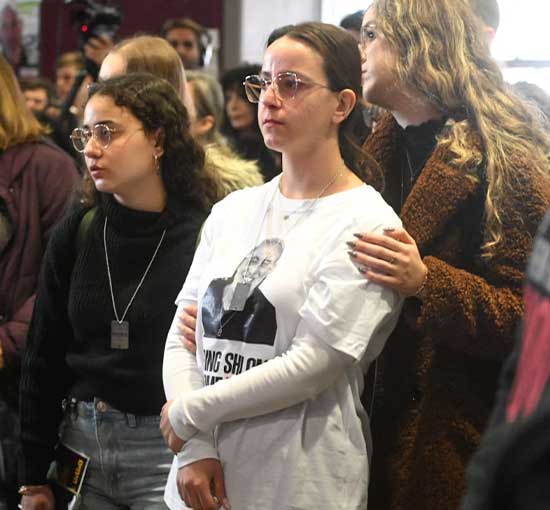
Hila Hatzav
A Refugee From Sderot
Hila Hatzav was supposed to move into her new apartment at the Technion on October 10. But living in Sderot, she fled the area with nothing more than the clothes on her back. When she didn’t show up, the Technion contacted her to see if she was all right. She told them she was as well as could be expected but left empty-handed. Technion staff and volunteers provided Hila with toiletries, clothes, food, bedding, apartment furnishings, and even a laptop.
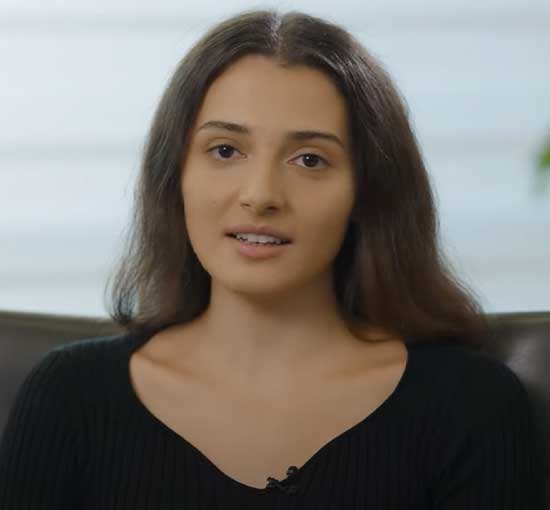

A Mission to Serve
D.S. is a fourth-year student studying electrical engineering and physics at the Technion. On October 7, he was in southern Israel when sirens woke him. Later that day, he was ordered to report to his infantry unit. He served for 132 days, missing five weeks of the semester. Thanks to support from the Technion, D.S. was able to transition from soldier to student.
Israel Is a Nation of Superheroes
R.B.Z.E. is completing her doctorate in the Technion’s Rappaport Faculty of Medicine. On October 7, she was on maternity leave and about to return to research. Duty called and she served 43 days in the air force while juggling her roles as a student, mother, and CEO of an organization mentoring mothers pursuing education. She managed by taking one day at a time, with support from the Technion.
Student Warrior
M.A. is a third-year undergraduate in biotechnology and food engineering. He is a reserve soldier in the Egoz, an elite commando unit. On October 7, he was ordered to join his unit, where he faced intense combat for three months. Upon returning, he worked with Technion advisors, who provided alternative assessments to exams, counseled him on course selection, and offered a generous tuition scholarship and dorm subsidy.
Return to the Year in Review
Click here